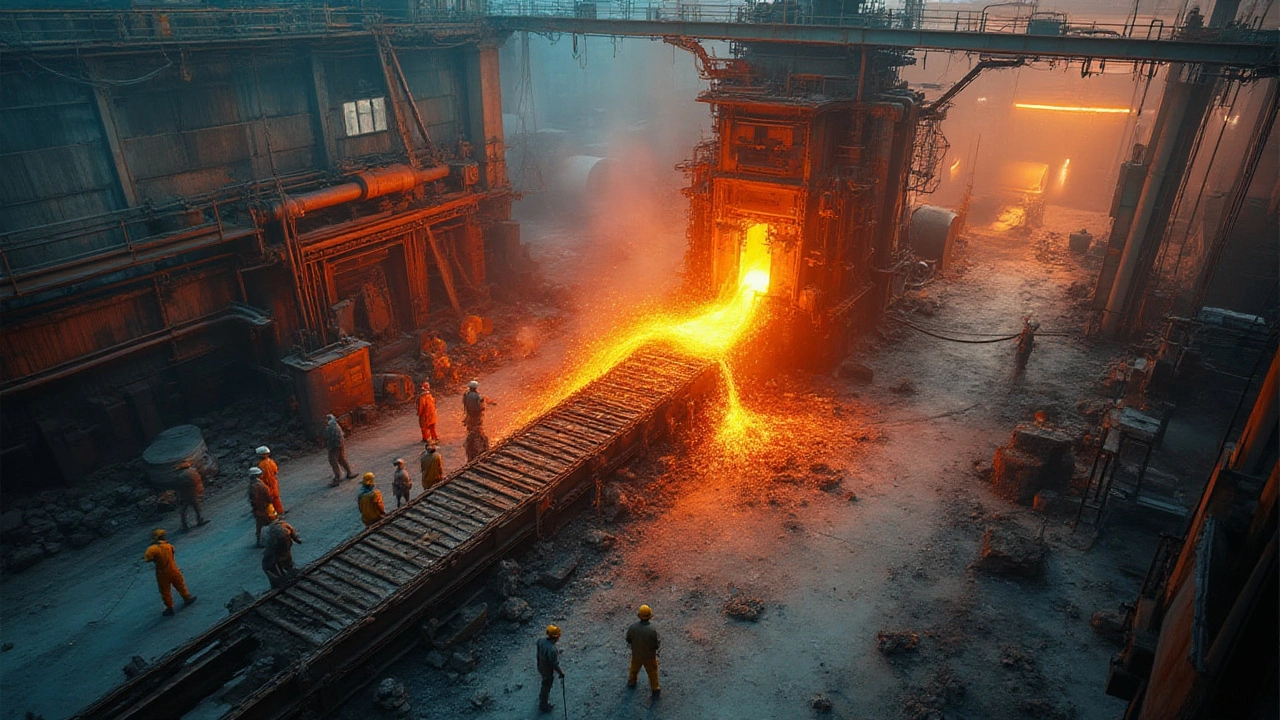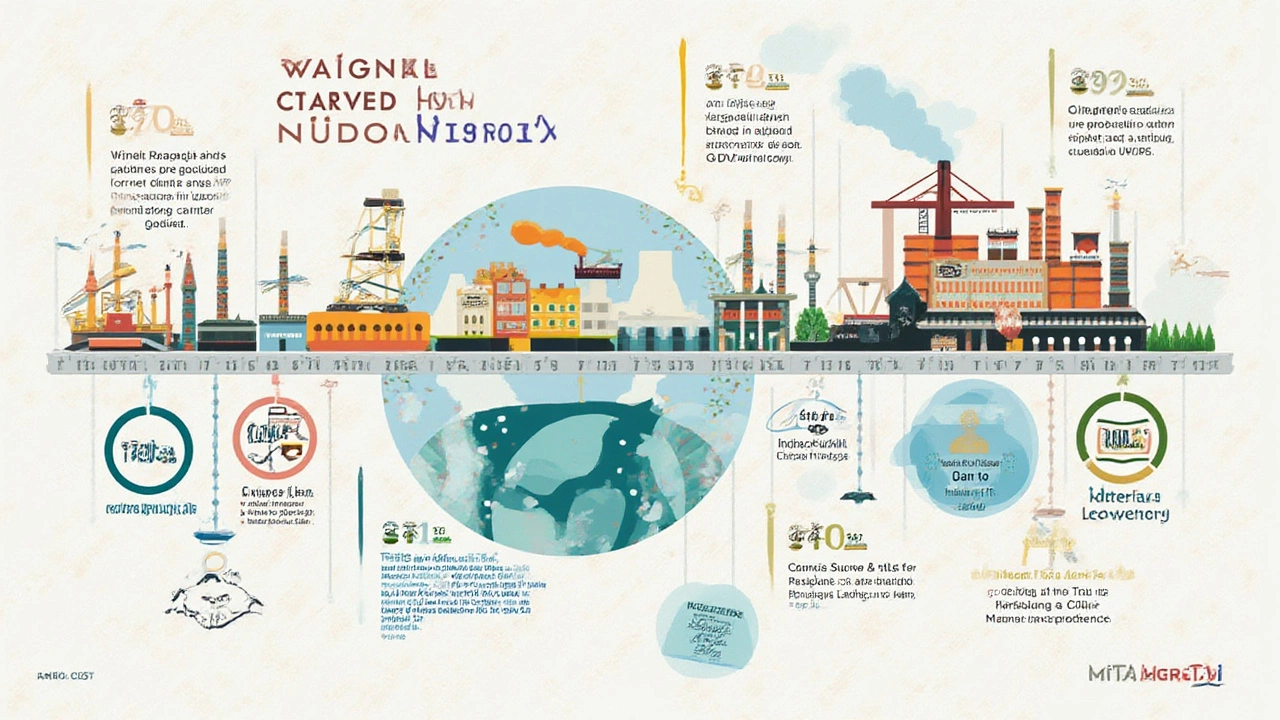Is Nucor Russian Owned? Steel Manufacturing Ownership Explained

If you toss out the question, “Is Nucor Russian owned?” you might get a laugh from anyone in the American steel scene—or you might spark a serious conversation. After all, these days, ownership isn’t just about logos and headquarters. With the world’s biggest economies tangled together through assets, stocks, and supply chains, who really holds the reins? When you’re dealing with a steel producer as massive and influential as Nucor, the answer is more interesting than you’d expect. Especially for anyone worried about international clout, jobs, or security—this isn’t a side note. Grab your morning coffee (or whatever keeps you alert these days), because what’s behind Nucor’s financial curtain is both surprisingly simple and tangled up in bigger global forces.
The History and Identity of Nucor Corporation
Nucor didn’t come from some shadowy old-money clan or a government cartel snapping up pieces of the American economy. Its roots go back over a hundred years, and honestly, the start was anything but glamorous. Before it was even called Nucor, this company was a maker of cars and then nuclear instruments (hence the "Nu" in the name). But as is often the case, the journey changed everything. The early years were rough, even chaotic: near bankruptcy in the late 1950s, leadership shake-ups, even fresh starts under new names. Then, under the leadership of Ken Iverson in the 1960s, Nucor threw itself into steel production, operating on a simple but powerful idea—focus on low-cost, efficient mini-mill technology, and treat employees like partners, not faceless parts in a machine.
These mini-mills popped up mainly in America’s heartland, melting scrap metal into fresh steel, sidestepping the massive, old-school blast furnaces owned by the big dogs like U.S. Steel. And here’s the twist: they thrived. Nucor invented a profit-sharing culture, paid workers for performance, and set up plants where materials and talent lived nearby. There are books written about Nucor’s "no perks" management style—it’s part of business folklore. But nowhere in the company’s DNA will you find a Russian oligarch, a Moscow connection, or a Kremlin executive. Nucor grew out of U.S. soil, guided by American managers, shaped by market competition, and owned by stockholders whose names you’d find listed on the New York Stock Exchange, not buried in Eastern European accounting dodges.
Current Ownership and Corporate Structure
If you really want to know who owns Nucor, you have to check the stock ticker. Nucor (NUE) trades on American soil, under the strict rules of U.S. financial oversight. The company isn’t held by a family dynasty nor by any one entity—it's a public company. So when you ask who actually owns it, the honest answer is: people and organizations buying shares on the open market, mostly in the United States. According to filings from 2025, the top shareholders are big U.S. investment firms like Vanguard Group and BlackRock. They steer gigantic retirement funds that millions of everyday Americans depend on, including folks in Iowa as well as Wall Street.
Let’s get concrete. As of this year, institutional investors—think banks, insurance funds, pension plans—own over 80% of Nucor’s stock. Most top shareholders are American-based, and you can see the breakdown in their required public disclosures. There’s no sign—none—of Nucor being controlled by Russian interests or foreign governments. Every registered major shareholder is scrutinized by the SEC, and if a global event like a Russian takeover of such a major American industrial player even got close to happening, you’d see it in every headline.
A big tip for navigating corporate ownership: public companies, especially those traded in America, are much easier to track than you might think. Websites like Yahoo Finance, Nasdaq, or the official Nucor investor page reveal the top holders. You can pull up a table of the largest institutional investors with a single search. Here’s a sample:
| Investor | Country | Estimated Ownership (%) |
|---|---|---|
| Vanguard Group | USA | 16 |
| BlackRock | USA | 12 |
| State Street | USA | 8 |
| Other US Institutions | USA | 44 |
| International shareholders (all countries, combined) | Global | 20 |
As you can see, there’s no big block pointing towards Russian hands. If there were, the amount of paperwork, media coverage, and government alarm would be immediate and overwhelming.

Where the Russian Rumor Comes From
Here’s the real kicker: the internet is a rumor machine, turbocharged by a mix of truth and wild guessing. Sometimes, names like Nucor fly through the online mill tied to Russia just because they’re massive. Someone might see Nucor doing business globally and assume a Russian billionaire could be somewhere in the mix. Other times, confusion kicks in because several Russian steel producers are major global players: at the top are Severstal, NLMK, and Evraz, which do plenty of trade outside Russia and have plants in multiple countries.
None of these companies own, invest in, or control Nucor. The steel universe is giant, sure, but the sphere of Russian industrial ownership is totally separate from America’s Nucor. U.S. law makes foreign takeovers of big strategic assets extra difficult—especially now, when any whisper of Russian ownership leads to Congressional hearings and cable news frenzy. Besides, the steel sector is labeled a "critical industry" for national security. There are strict government rules: the Committee on Foreign Investment in the United States (CFIUS) has to review and approve any major foreign acquisitions. This isn’t a rubber stamp—ask any foreign company that’s tried to scoop up an American defense supplier or key resource provider. Law after law keeps Nucor in home-grown hands.
A quick tip: when you hear rumors about Russian—or any foreign—ownership of an American industrial giant, check actual filings, SEC documents, and trace ownership chains. If it’s not in the news from reliable sources, and if a company's U.S. headquarters hasn’t made a formal announcement, odds are the rumor is nothing more than online chatter. Steel workers in states like Alabama, Arkansas, and North Carolina would’ve sounded the alarm if there was anything to it. A lot of those folks, including people like my own Uncle Dave who did a stint in the Midwest mini-mills, are super plugged into local and national news. None have ever heard credible whispers about Russian cash creeping into Nucor.
Nucor’s Role in the U.S. Economy and Global Steel Markets
This is where things get interesting. Nucor doesn’t just make steel for bridges and rebar. It’s a vital artery in America's economic circulatory system. With over 30,000 employees, hundreds of facilities, and an annual production capacity greater than almost every other U.S. steelmaker, it’s a lynchpin for everything from pipelines to skyscrapers to pickup trucks. Check any city’s construction site—Nucor-produced structural beams and rebar are probably on site. The company even helps feed the renewable energy boom, providing steel for wind turbine towers and solar power frames.
No surprise, Nucor’s health is closely tied to the health of U.S. industry. It supports small businesses across the construction, fabrication, and energy sectors. Its profit-sharing model means front-line workers have a say (and a stake) in the company’s success. For families like mine, where steady jobs can mean college tuition or braces for the kids, that kind of homegrown success story hits close to home.
On the global stage, Nucor is always sparring—sometimes directly, often indirectly—with Russian, Chinese, and European giants. Steel is a cutthroat market, with prices shifting daily based on tariffs, supply gluts, energy price swings, and politics. When the U.S. government slaps tariffs on imported steel, it’s often to give companies like Nucor more room to grow and keep jobs on American soil. Still, Nucor’s allegiance doesn’t get blurry—it sits squarely in the camp of the U.S. economy, shaped by American industry trends, not global oligarchic ambition. The most direct foreign influence on Nucor comes from competition, not ownership.

Telltale Signs of Foreign Control—and Why They Don’t Apply Here
So, if you’re trying to sniff out whether a company’s got foreign fingerprints on it, there are some classic signs. First, look for sudden changes in leadership or a domino effect of resignations from the board—Nucor hasn’t had these. Second, ownership filings will show new major shareholders from abroad—you won’t see Russian individuals, companies, or shell entities showing up in Nucor’s books. Third, check for headquarters relocations or new plants in odd places chosen mainly for tax shelter purposes—Nucor stays rooted in North Carolina, growing into new parts of the U.S., not jumping continents.
Another big clue? Watch for government investigations or news flashes about security concerns. If any hint of Russian acquisition appeared, U.S. lawmakers, regulators, and journalists would be all over it, just like they were in notorious scandals from other industries. There’s nothing like that on the horizon for Nucor, and none buried in the past. Company transparency is a must—they report quarterly, are covered by independent financial analysts, and have a public-facing board of directors. Regular folks—even people like my son Miles, who reads business news on his phone between soccer and snacks—can follow what’s going on with zero advanced finance degree required.
If you want to dig even deeper, here are some tips:
- Visit the Nucor investor relations webpage—ownership breakdowns are posted transparently.
- Type "Nucor top shareholders" into any finance news site for the latest numbers.
- Check the U.S. Securities and Exchange Commission's (SEC) EDGAR database for genuine filings—not just internet summaries.
- Follow steel industry news for mentions of international deals or acquisition rumors.
- Ask around in the field: welders, construction workers, and even the company’s own employees tend to have a better pulse than rumor-spreaders online.
So when friends, coworkers, or those chatty parents on the sidelines at Miles’s soccer game toss out the question about Nucor’s ownership, you’ll have the real, honest, bulletproof answer. No Kremlin connections, no Russian oligarch hiding in the boardroom—just a purely American steel company, owned by public investors, and as transparent as they come.